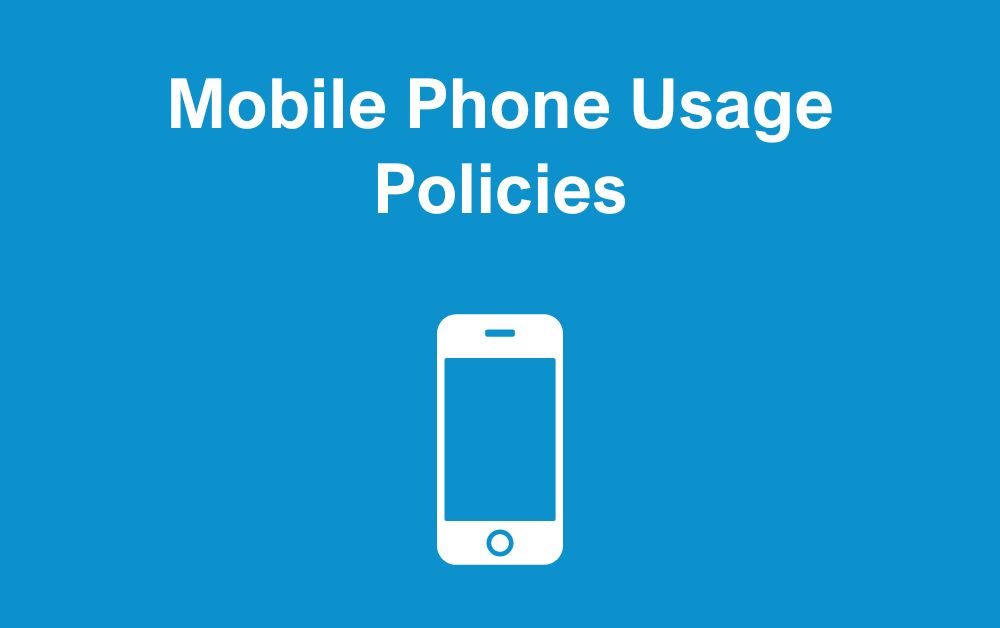Mobile Phone Usage Policies – Increasingly of Importance in the Workplace

Mobile phones have particular policies on usage in the workplace.
In the modern workplace, productivity can be monitored in many different ways but in order to get an accurate assessment, it’s necessary to understand all of the possible influences on performance.
Although you may have internet usage policies in place along with management information systems and desktop phone recording facilities, there may well be another very significant factor being overlooked: the mobile phone.
Very few employees now come to work without a mobile, and although ostensibly this is for emergency contact, in many cases it is used for many other reasons too.
We take a look at mobile phone usage policies, and just why they are of so important.
The use of mobile phones
Using phones out of turn can land you in trouble.
Mobile phones are a nuisance to everyone else but the user; the initial ring is irritating and the subsequent conversation difficult to ignore.
They are around wherever you go but the workplace should (in the majority of cases) be somewhere free of the demon distraction.
However, many employers tolerate mobile phones being brought into the workplace as they’re needed as a means of emergency contact. If their use was confined to this reason alone, there would be little need for a mobile phone usage policy but in the vast majority of cases, they become an unwelcome distraction.
Texting friends, when they should be working, updating Facebook or taking personal calls, are all ways in which an employer’s willingness to allow mobile phones can be abused.
The use is not always subversive, checking texts or answering non-work related phone calls during meetings is a fairly common occurrence despite the fact that in a survey, nearly nine out of ten people agreed it wasn’t acceptable conduct.
Issues in the workplace
Internet usage policies are a common fixture in the workplace and some companies block websites such as social media which have the potential to cause severe disruption.
However, with the multi-functions of smartphones, it’s possible to waste hours on the internet away from the restrictions of a work computer.
Constantly sending texts to family and friends, or making a stream of calls are other ways in which performance can be severely affected, but won’t show on your management information system.
This type of behaviour is not just a problem because of the drop in productivity, but also because of the impact it can have on the rest of the staff.
Watching an individual getting away with frittering away large chunks of the working day can be annoying and frustrating for colleagues, particularly if their workload increases as a result.
Even if there isn’t resentment, mobile phone use is something which can very easily spread. It only takes one person to start taking their mobile to meetings or checking texts whilst they are talking to the boss, for it to start being seen as acceptable behaviour.
Implementing measures
For the reasons described above, it’s vital to have a mobile phone usage policy which is clearly documented and communicated to all staff.
This prevents any employee from claiming you are discriminating against them or bullying them if you discipline them for the excessive or unacceptable use of their mobile phone.
It’s entirely up to you what standards you are willing to accept. Common rules include the phone being kept on silent or vibrate during the working day, and no checking texts, taking calls or other forms of usage unless on an official break such as lunch.
Employees can also be told to give family and friends their manager’s direct line for use during an emergency; this prevents staff from being able to claim it was a crisis if they are caught using their phone during working hours.
Using phones out of turn can land you in trouble.
Some workplaces opt to ban mobile phones completely, asking staff to keep them switched off and out of sight. This is quite a tough approach and one which is likely to be unpopular, but if you have a particular problem with mobile phone use and can’t trust your employees to adhere to the agreed policy, this might be something you want to consider.
Conclusion
Whatever rules you decide to implement, it’s essential to make sure they are formally documented for all staff to see and refer to. Be consistent and ensure you enforce the mobile phone usage policy or else you could risk ending up with a workplace which isn’t just unproductive but resentful and with poor morale too.
If you are concerned mobile phones are affecting your employees’ productivity then we can help by putting together a mobile policy document that outlines what’s acceptable in your workplace. If you’d like to discuss your requirement please give us a call on 01383 668178 or drop me an email at alistair.booth@thehrbooth.co.uk
Are you ready to elevate your HR strategies?
Connect with our expert team for tailored solutions and insights. Call The HR Booth at 01383 668178 or reach out via email at info@thehrbooth.co.uk or use the contact form.
